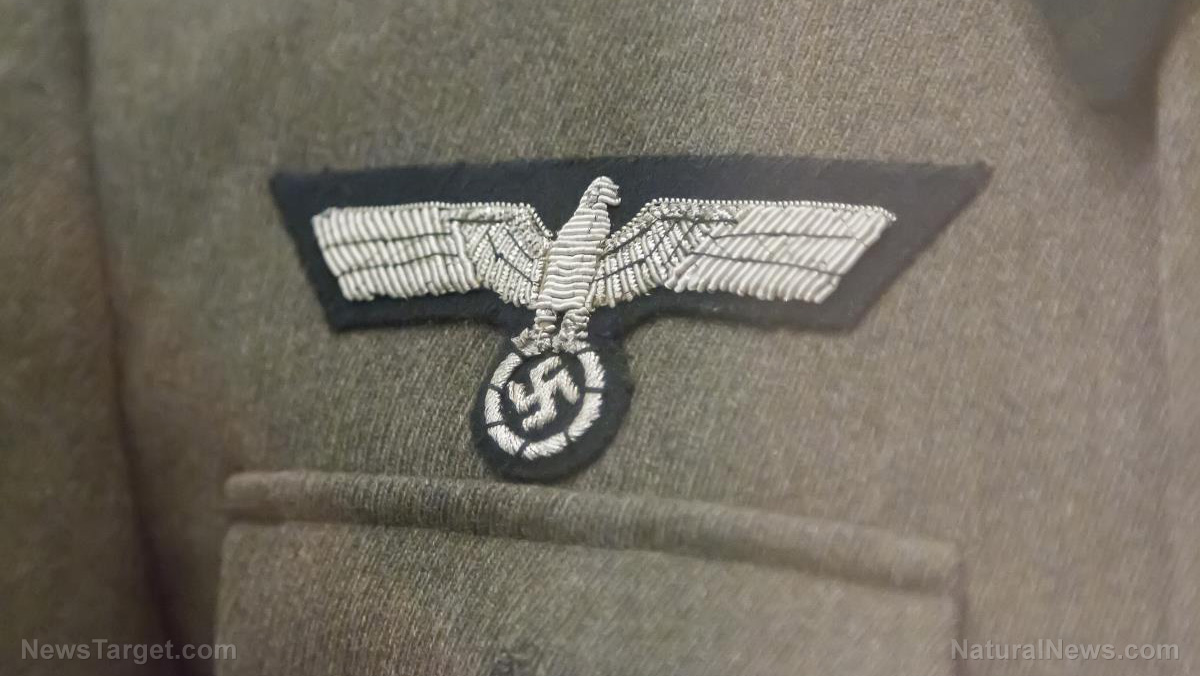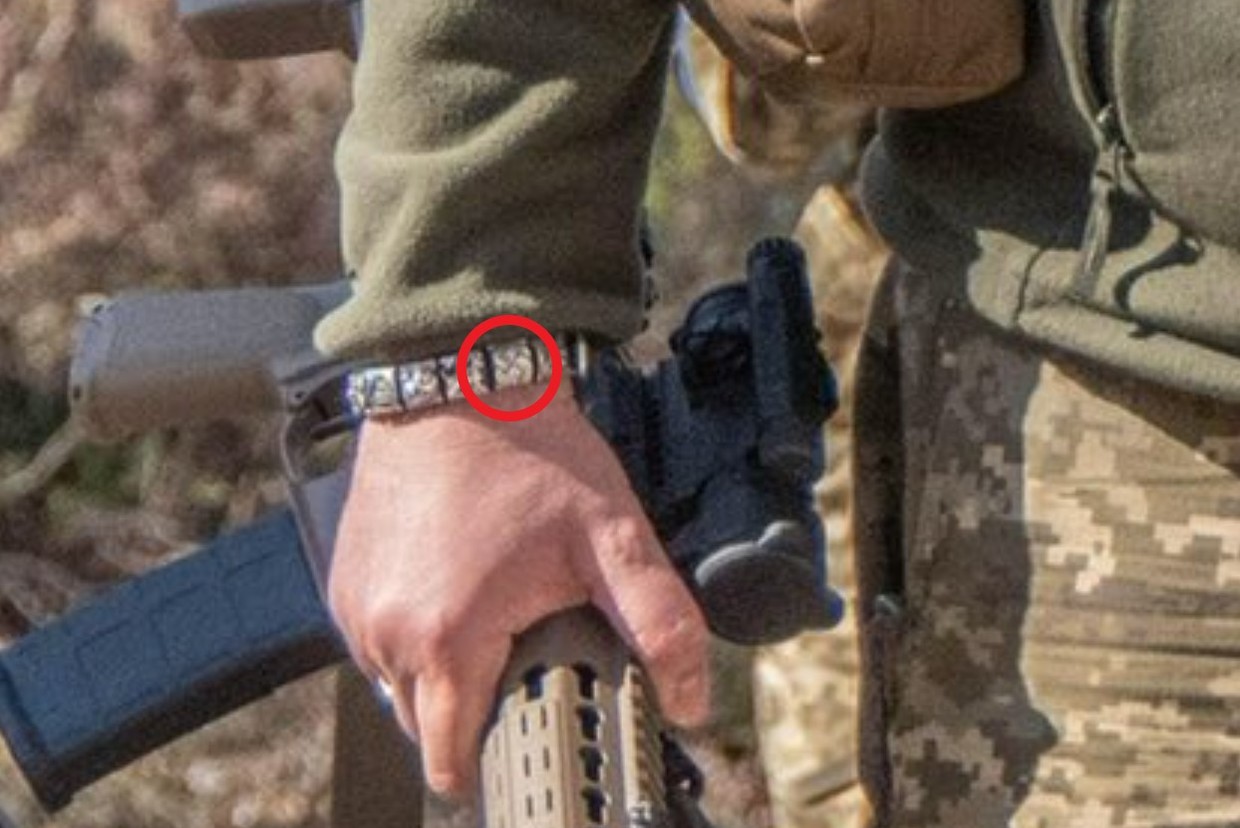
General Valery Zaluzhny, commander-in-chief of Ukraine’s armed forces, posted a photo to Twitter of himself wearing a swastika bracelet. Although Kiev dismisses accusations of Nazism within its ranks as “Russian propaganda,” its soldiers are often photographed wearing the symbols of the Third Reich.
(Article republished from RT.com)
In a post on Thursday, Zaluzhny declared that Ukraine’s struggle against Russia is on a scale that “the world has not seen since the Second World War.” It was not immediately clear which side of the struggle he was referring to.
Adorning Zaluzhny’s wrist in the photo is a bracelet made up of multiple tiles, at least one of which features a swastika. The photo itself has been circulating online since at least March.
?? ????? ????? ?????? ????????, ????????? ???? ???? ?? ????? ?? ????? ?????? ????????. ?? ?? ????? ????? ?????????? ?? ????? ?? ????? ?????. ?????? ???????? ??????? ??? ? ?????. ? ?? ?? ?????? ???????.#valeriizaluzhnyipic.twitter.com/8PsVOD9iiN
— Commander-in-Chief of the Armed Forces of Ukraine (@CinC_AFU) October 6, 2022
[caption id="" align="alignnone" width="590"] A close-up image of General Valerii Zaluzhnyi's swastika bracelet, taken from a photo posted to Twitter on October 9, 2022[/caption]
A close-up image of General Valerii Zaluzhnyi's swastika bracelet, taken from a photo posted to Twitter on October 9, 2022[/caption]
A handful of pro-Ukrainian commentators claimed that Zaluzhny’s bracelet actually depicted a Scandinavian pagan symbol, which looked like a swastika due to digital compression of the image. Zaluzhny himself commented on one Facebook post insisting that this was the case.
However, he is not the first Ukrainian service member accused of wearing Nazi insignia. Apart from the notorious Azov regiment of the Ukrainian military (which originated as a neo-Nazi militia), regular Ukrainian service members have been seen wearing the ‘death’s head’, or ‘totenkopf’, the symbol of the 3rd SS Panzer Division, and have also daubed swastikas on their vehicles.
Ukrainian President Vladimir Zelensky has posted an image of a Ukrainian soldier wearing the standard of the 14th Waffen Grenadier Division of the SS, a photo of an artilleryman wearing the death’s head, and a photo of one of his own bodyguards wearing the same ‘totenkopf’ patch. Two of these pictures were posted to Zelensky’s official Instagram account.
Russian President Vladimir Putin cited the outsized influence of neo-Nazi groups on Ukraine’s military and government as one of the factors influencing his decision to send troops into the country in February. In addition to protecting the Donbass region and demilitarizing Ukraine, Putin vowed to “denazify” the country.
Despite the evidence, Ukrainian officials and some Western media outlets have described accusations of neo-Nazism as “myths” and “Russian propaganda.”
Read more at: RT.com
Please contact us for more information.















